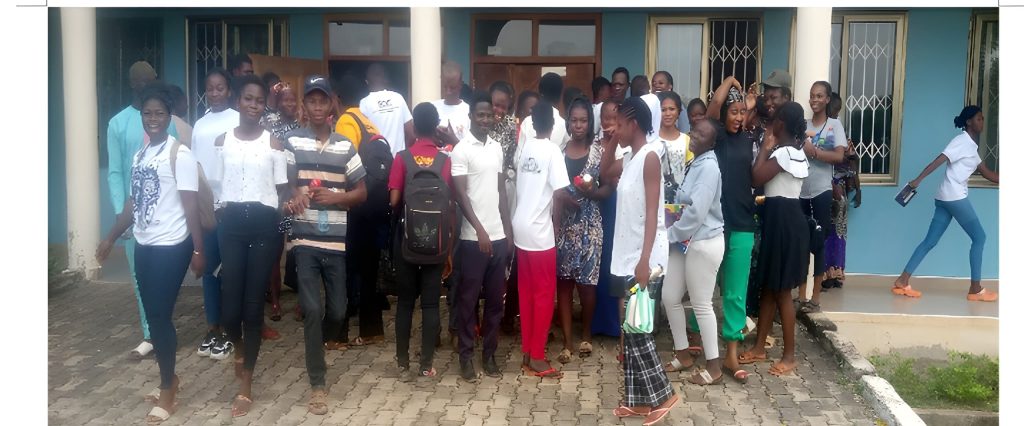By Gilbert Azeem Tiroog
Bongo (U/E), Nov 15, GNA – The National Commission for Civic Education (NCCE) has held a sensitization session on preventing violent extremism for students at Regentropfen University College of Applied Science in Bongo District in the Upper East Region.
The sensitisation of the students formed part of the Preventing and Containing Violent Extremism (PCVE) project being implemented by the NCCE in the five Northern regions and two other adjoining regions with funding support from the European Union (EU).
It aimed at raising awareness among young people about the dangers of violent extremism and related conflicts, particularly ahead of Ghana’s upcoming elections.
The sensitisation also focused on augmenting the youth’s understanding of peacebuilding mechanisms, social cohesion, community-based mechanisms, including identifying early warning signs, and basic community-based strategies for countering arms proliferation.
Mr James Abdulai Ayaala, the Upper East Regional Director of the NCCE, in his keynote address, urged the students to avoid violent behaviour and guard themselves against being used by conflict entrepreneurs as the election season approaches.
He highlighted the tragic loss of loved ones in previous elections, stressing that no political party could compensate families for the loss of a loved one and it was important they took a clue from previous happenings.
Mr Ayala called on the students to focus on their studies and other productive activities for a better future, instead of engaging in violence.

Mr Augustine Akugri, Deputy Regional Director of the NCCE, bemoaned the growing monetisation of politics, particularly vote-buying, stressing that it was worrying as it had the tendency to destroy the democratic fabric of the country, and students must desist from attempts to be aiders of it.
“If this is left unchecked, money-driven politics could undermine Ghana’s democracy, and as students, you must not encourage this and insist on the development of your communities,” he said.
Mr Akugri advised the students to desist from the creation and spread of fake news, as such acts could jeopardise the peace of the country, hence the need for them to critically evaluate information before sharing.
Assistant Superintendent of Immigration (ASI), David Asamoah Agyeman of the Ghana Immigration Service, outlined the causes and consequences of violent extremism, explaining how extremist groups exploit vulnerable youth, often through social media.
He said the youth were the target of the violent extremists, and once recruited, individuals could face significant risks, including death.
He urged the students to resist extremist ideologies and work towards building a peaceful, cohesive community to prevent radicalisation.
GNA.